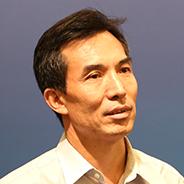The Group of 20 summit was held in Antalya, Turkey on 15-16 November. Leaders of the member states vowed to strive for a strong and inclusive growth of economy with enhanced investment as the growth engine. They pledged to increase inclusiveness in action so that the growth will benefit everybody.
If one word is to encapsulate the result of the Brisbane summit held last year, it is “growth”. At that meeting, the G20 leaders promised a 2 percentages extra growth of the world economy by 2018. The recovery, however, did not come as expected for this year. The International Monetary Fund has recently lowered its expectation for this year’s world economic growth to 3.1 percent. The WTO predicted that the growth of the global trade would continue to be slower than that of the world economy. And the slump of the prices of bulk commodities and the changes in many countries’ monetary policies added to the difficulty for meeting the target of 2 percent growth.
In this year’s G20 summit, the key word is undoubtedly “inclusiveness”. The theme Turkey set for the current summit is “collective action for inclusive and robust growth.” Objectively speaking, this is a good proposal.
2015 is no doubt a year of international cooperation for development. From the third UN International Conference on Financing for Development held in Addis Ababa, Ethiopia to the UN Sustainable Development Summit held in New York to the UN Climate Change Conference to be held in Paris and the 10th meeting of WTO Development Round later this year, “development” has been the key word. These high-level dialogues were held to draft blueprints for the future global development with regard to its financing, procedure and growth targets.
Given that they account for 85 percent of the global economy, 75 percent of the world’s total trade volume and two thirds of the globe’s population, it is incumbent upon the G20 members to support the agenda of international development. But what should they do to use their unique advantages to contribute to the global development?
The concept of “development” has been developing in recent years with new content being included constantly. In the past, it was more of a one-way support for developing countries; now it attaches more importance to equal-footing partnership between developed and developing nations. As the top platform of international economic cooperation, G20 should let the world know that development is not a burden and challenge brings along opportunity as well. All parties should strive to turn deficiency into demand and market and gain motive force from development potentiality. In short, what is needed is: openness, innovation and inclusiveness.
Openness is the precondition of development. G20 should encourage openness in global economy and cooperation in trade and investment, fight against trade protectionism, improve the multilateral trade system and help developing countries participate in the global chain of values. Bilateral and sub-regional trade agreements are certainly positive for the promotion of global trade, but they only benefit targeted parties. Only by matching and coupling the regional arrangement with the multilateral trade system, can there be free flow of resources, technologies and capital throughout the world, which will fundamentally help developing countries attain sustainable development.
Innovation is the prime driving force for development. G20 should take measures to encourage technological innovation and build platforms for sharing experience and information and thus to tap the potentiality for economic growth on a wider range and at a higher speed. More importantly the group should carry out innovation in economic institution and growth model to break the bottleneck in economic growth. In-depth discussions have been conducted in this year’s G20 meetings with regard to economic restructuring, employment, infrastructure investment and anti-graft moves. It is hoped that these talks can be converted into actions for positive results.
Inclusiveness is the guarantee of development. The goal G20 set for its 2030 Agenda for Sustainable Development is to realize common development of the entire human race, leaving no one behind. To attain that goal, G20 should meet the demands of developing countries and every member state should include that goal into their domestic agenda for development. For instance, they should care more about women and young people, give enough attention to agriculture in economic restructuring and help small and medium-sized enterprises to grow larger. Development will not be a healthy and sustainable one in its true sense if it cannot become balanced, all-round and inclusive and eliminate inequality.
Development needs continued commitment and earnest work. China will host the next G20 summit in 2016. In his speech delivered at the Antalya summit, Chinese President Xi Jinping announced four “I”s as the theme words of the 2016 summit, namely striving for the development of an “Innovative, Invigorated, Interconnected and Inclusive” global economy. As the world’s largest developing country, China is undoubtedly fully aware of the necessity and urgency of development and the significance of innovation, interconnection and inclusiveness to development. In recent years, China has been working hard to promote the “One Belt, One Road” initiative in the hope that all countries and regions along the routes make joint efforts to bring the initiative into practice and share the benefits. At the UN Sustainable Development Summit, President Xi announced the establishment of the “Fund for Supporting South-South Cooperation,” in which China will inject $2 billion as the first step and will increase investment in the least developed nations, so as to help developing countries to implement the 2030 Agenda for Sustainable Development. The 2016 G20 summit to be held in Hangzhou, China, will sound the clarion call for implementing the 2030 Agenda for Sustainable Development.
